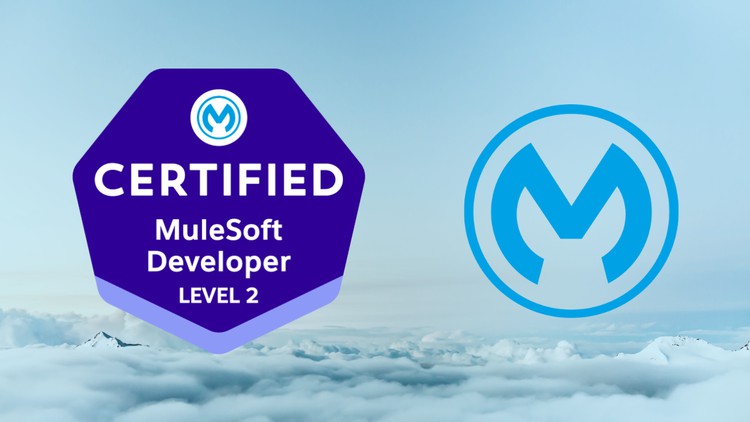In the realm of professional development and certification, the debate surrounding the necessity of yearly high-stakes MCD-Level-2 exam has been a topic of growing concern and discussion. As technology and learning methodologies evolve, it becomes crucial to scrutinize the effectiveness and relevance of such rigorous assessments. This article delves into the heart of the ongoing debate, exploring arguments from both sides and considering the implications of yearly high-stakes MCD-Level-2 exam on professionals, the industry, and the pursuit of knowledge.
The ongoing discourse regarding the yearly high-stakes MCD-Level-2 exam centers on scrutinizing its continued significance in today’s rapidly evolving educational and professional landscape. Advocates contend that these annual assessments uphold proficiency standards and ensure professionals remain up-to-date with industry advancements. However, skeptics raise concerns about the potential pressure, stress, and short-term memorization associated with such an exam.
The Value of High-Stakes Exam
High-stakes exams play a pivotal role in shaping the competence and credibility of professionals within their respective fields. These rigorous assessments serve as a litmus test for an individual’s depth of knowledge, skill proficiency, and adaptability. By necessitating a yearly high-stakes MCD-Level-2 exam, industries ensure that certified individuals remain well-versed in the latest developments, upholding a standard of excellence.
These exams establish a yardstick for professionals to gauge their expertise against a recognized benchmark, fostering a sense of achievement and motivation for continuous improvement. Moreover, the high-stakes nature of these assessments bolsters the reputation of certifications, signifying a commitment to excellence that resonates with employers, clients, and peers alike. Through a yearly high-stakes exam, professionals demonstrate their unwavering dedication to staying informed, equipped, and competitive in an ever-evolving professional landscape.
When preparing for the MCD-Level-2 exam, leverage examcollection.us resources. Their practice tests and study guide offer vital insights. The MCD-Level-2 VCE exam collection test simulates the exam environment, while the guide focuses your study. The questions and answers provided also aid in quick revision. Integrating these resources ensures success in the exam.
Challenges and Concerns
The high-stakes MCD-Level-2 exam, while aiming to uphold professional standards, introduces a spectrum of challenges and concerns. These assessments, designed to assess proficiency and currency, may inadvertently promote short-term memorization over deep comprehension. The pressure to excel annually could prioritize passing the exam over holistic learning and application of knowledge.
Moreover, the stress associated with high-stakes exams can lead to burnout among professionals, negating the joy of continuous learning. The fear of failure may overshadow the intrinsic motivation to explore innovative solutions, stifling creativity. Striking a balance between rigorous assessment and fostering a genuine passion for learning is a delicate challenge.
The impact of these challenges extends beyond individuals, influencing the overall efficacy and credibility of certifications. Addressing these concerns requires thoughtful consideration, promoting an environment where professionals can thrive while maintaining the integrity of certification standards.
Exploring Alternatives
Amidst the ongoing debate on the yearly high-stakes MCD-Level-2 exam, there is a growing inclination towards exploring alternative assessment approaches. One such alternative is the adoption of modular assessments, which allow professionals to showcase specific skills or knowledge areas. This approach encourages targeted learning, provides a comprehensive evaluation, and promotes continuous improvement.
Another avenue involves emphasizing practical application over a theoretical exam. Real-world projects, case studies, or simulations could become integral to assessment, demonstrating the ability to translate knowledge into tangible outcomes. Such an approach aligns with industry demands and provides a more authentic representation of an individual’s capabilities.
Incorporating adaptive learning technologies offers yet another path forward. These technologies personalize learning experiences, adapting assessment difficulty based on individual strengths and weaknesses. Such adaptive assessments ensure a tailored evaluation, challenging candidates appropriately and fostering exploration of new areas.
Balancing Tradition with Innovation
The debate surrounding the yearly high-stakes MCD-Level-2 exam highlights the delicate task of balancing tradition and innovation in professional assessment. While tradition upholds the significance of rigorous examinations, innovation responds to the dynamic landscape of modern learning and technology. Striking this equilibrium requires infusing time-tested assessment methodologies with cutting-edge approaches.
Integrating adaptive learning technologies, such as personalized assessments, caters to individual learning needs while maintaining the rigor of exam. Simultaneously, embracing continuing professional development (CPD) encourages a lifelong learning journey, allowing professionals to curate their growth while ensuring relevance.
By navigating this balance, industries can honor the value of tradition, which certifies proficiency, while embracing innovation, which empowers professionals to evolve. A hybrid model, blending the essence of traditional high-stakes exams with the flexibility of modern learning, might hold the key to cultivating competent, agile, and future-ready professionals.
Conclusion
The ongoing debate surrounding the yearly high-stakes MCD-Level-2 exam is a reflection of the evolving landscape of professional development and certification. As the world embraces digital transformation, remote learning, and personalized skill development, it is essential to question traditional examination paradigms. Striking a balance between the value of yearly exams in maintaining proficiency and the need for adaptable, innovative assessment methods is key. By critically examining the relevance of these exams and exploring alternatives, the industry can ensure that certifications remain meaningful, credible, and reflective of the skills demanded in today’s dynamic work environments. As the debate continues, it is imperative to prioritize the holistic growth and ongoing learning of professionals while upholding the integrity of certification standards.


